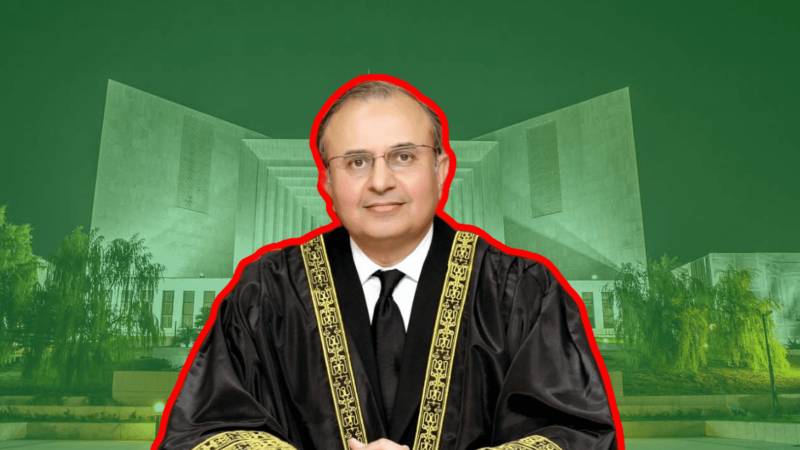
Even though the Supreme Court on Friday approved a petition filed by former prime minister and Pakistan Tehreek-e-Insaf (PTI) Chairman Imran Khan for hearing and overturning amendments made to the National Accountability Bureau (NAB) Laws, Justice Mansoor Ali Shah, who disagreed with the majority judgement, has published his dissenting note.
The note by the third member of the three-member bench hearing the case, noted that he "could not make myself agree to it".
While attempting to briefly explain his disagreement, he said that the primary question posed in the case was "not about the alleged lopsided amendments introduced in the NAB law by the Parliament but about the paramountcy of the Parliament, a house of the chosen representatives of about 240 million people of Pakistan."
"It is about the constitutional importance of parliamentary democracy and separation of powers between three organs of the State. It is about the limits of the jurisdiction of the Court comprising unelected judges, second judging the purpose and policy of an enactment passed by the Parliament, without any clear violation beyond reasonable doubt, of any of the fundamental rights guaranteed under the Constitution or of any other constitutional provision," he said.
The majority judgement, Justice Shah said, "has fallen short, in my humble opinion, to recognize the constitutional command that 'the State shall exercise its power and authority through the chosen representatives of the people' and to recognize the principle of trichotomy of powers, which is the foundation of parliamentary democracy."
He also questioned the motives of the petitioner in filing the petition before the Supreme Court.
"The majority has fallen prey to the unconstitutional objective of a parliamentarian, of transferring a political debate on the purpose and policy of an enactment from the Houses of the Parliament to the courthouse of the Supreme Court," he added.
Justice Shah further raised questions and suspicions on the actions of his brother judges, in passing the verdict.
"Without setting out a clear and objective test for determining how the claimed right to have accountability of the parliamentarians is an integral part of any of the fundamental rights guaranteed under the Constitution, the majority judgment through a long winding conjectural path of far-fetched 'in turn' effects has tried hard to 'ultimately' reach an apprehended violation of the fundamental rights," he observed in the note.
He added that the majority judgment falls short of appreciating that what the Parliament has done, the Parliament has the power to undo.
"The legislative power of the Parliament is never exhausted. If the Parliament can enact the NAB law, it can also repeal the entire law or amend the same," he said, adding that detailed reasons will be provided later and rendered that his judgement on the petition is to dismiss it.

